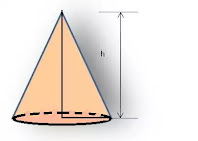CENTRE OF GRAVITY
C.G.: - is the point through which the whole mass of the body acts, irrespective of position of the body.
C.G.: - is the point through which the whole mass of the body acts, irrespective of position of the body.
- C.G. of an isosceles triangle with base ‘P' and side 'q' is ✓(4p^2- q^2)/6
- C.G. of an equilateral triangle with side 'a' = a/(2√3) from any side
- CENTRE OF PERCUSSION :- is the point of application of the resultant of all the forces tending to cause a body to rotate about central axis.
Centre of percussion of a homogeneous rod of length 'l' , suspended at the top will be= 2l/3
Centre of percussion of a solid cylinder of radius 'r' resting on a horizontal plane will be = 3r/2















1 Comments
Sir kindly upload some MCQ related to this topic.
ReplyDeletePlease do not enter any spam link in the comment box